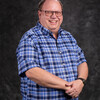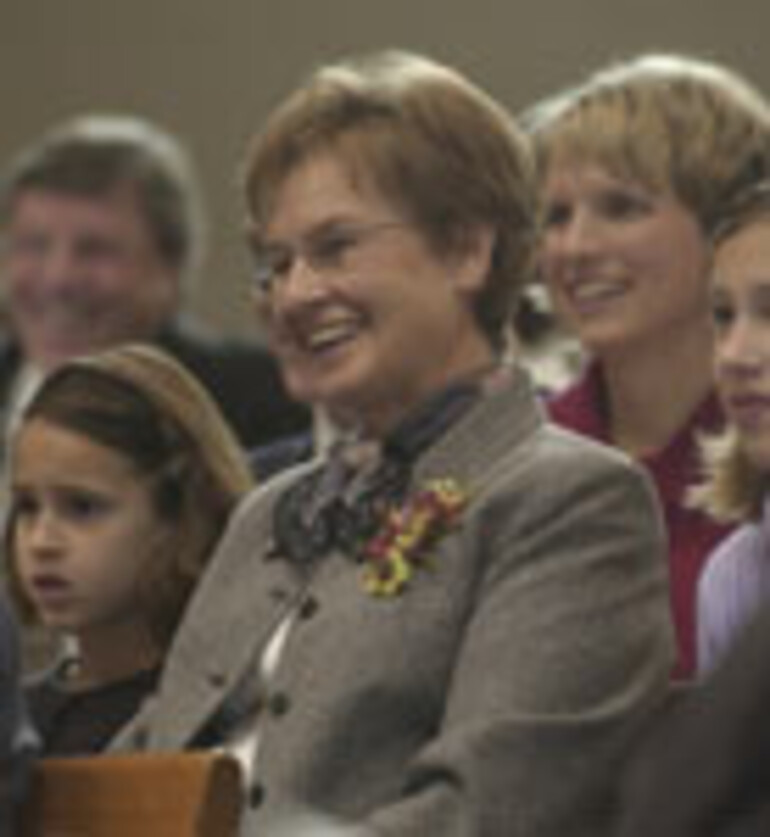GLEANER: Jon, you first came to Walla Walla College in 1976, where you taught for 13 years. Most recently you were a professor at Andrews University. What factors convinced you to leave full-time teaching and return here as president?
DYBDAHL: Teaching has been my first love, so I had never really given serious thought to becoming a college president. When the call initially came, we weren’t certain that it was in God’s will for us. So we turned it down and thought that was the last we would hear of it. But my wife, Kathy, had second thoughts. She said to me one day, “You know, Jon, if this opportunity should come again, we should at least think about it.” I thought that would never happen, especially since I had also been diagnosed at the time with a serious medical challenge. The timing just didn’t seem right. But then, the request came again. We spent a great deal of time in prayer, thinking through our own comfort zones and what God wanted for us. This call had not been anticipated. It was certainly nothing I had encouraged. In the end, God turned our thinking around to believe that accepting the call was the right thing to do. It still amazes and humbles me.
GLEANER: What are the major challenges facing the College right now?
DYBDAHL: We are challenged by how we can respond as a dynamic Seventh-day Adventist institution to the current climates of our changing world and the demographics of our Church. When our College was founded, our Northwestern Church had only 1,500 members. It took great faith then, and, even with more than 80,000 current members, it will take great faith now to meet these new challenges. We must be strong enough in our mission and vision to adapt without losing our core values. We need to find young, dynamic faculty and staff willing to serve, strongly connected to our mission and the ideals of the church. We must also maintain a high level of education while keeping our fees affordable for our students and their parents. I’m thankful for the current commitment I sense on our campus. By the way, regarding finances, we are not rich, but we are solvent, and we should have a modest budget surplus this year.
GLEANER: What is your personal mission as it relates to Walla Walla College?
DYBDAHL: We have a great group of administrators, faculty, and staff that work to specifically apply our vision and mission. So, as I see it, my role is to continue to set the overall tone and vision and nurture our team to carry it out. I want to constantly ask the question, “What is the will of God for us?” And I want to set a wholistic tone. I believe that faith should impact all academic disciplines, and intellect affects all areas of faith. When the time comes for me to leave my current role here, I want to be remembered as a person who took Adventist higher education seriously and a commitment to God and the mission of our Church just as seriously. There doesn’t have to be a discrepancy between a committed spiritual life and an intellectual curiosity and the scholarly work of our College.
GLEANER: Some might say, “Well, that’s just Dybdahl’s vision?” What are you doing to engage your entire team?
DYBDAHL: My goals are not new to this College—they’re grounded in the mission of our founders and our Church. We need to hold with one hand to our past and with the other firmly grip the future. Our team knows the details of how to look after the specifics. My major goal is to look after the big picture of mission and vision. Before school started, we held an administrative retreat, specifically sharing how God had led in our personal lives, and sharing individual perspectives on where He is leading our College. We’re blessed to have an extremely gifted leadership team, all reading off the same page. This is not just my initiative—it’s being recognized in all areas of the College.
GLEANER: What are some of the major factors shaping Adventist higher education today?
DYBDAHL: Competition is growing between colleges and universities. That’s partially because the overall number of students is decreasing, as the children of Baby Boomer parents move through the system. And, our people are much more mobile—they’re not tied to any one geographical region. The demographics of our Church are changing, and Adventist higher education is no longer an automatic choice for some families—they are choosing other institutions. We will have to adjust. Overall, we will need to do a better job at articulating the vision and mission of higher education and strengthening the confidence of our people. Some members see higher education as a source for problems, counterproductive to the mission of the Church. We have to change that. We need to demonstrate that we are becoming centers for renewal and growth in the work of the church.
GLEANER: What would you say to assure Northwestern parents and students of Walla Walla College’s strong commitment to the Adventist mission?
DYBDAHL: Certainly, our heritage is strongly connected to our Church’s mission. Over the years, our College has sent out more student missionaries than any other institution. And we have many excellent programs under way—some organized, others springing from student grassroots efforts—that show our students actively participating in service, worship and other spiritual growth. Sometimes we perceive holiness in direct proportion to the distance an institution is from us. If we look carefully enough, we can find good things as well as problems at all of our institutions. I’d like to suggest that our parents and students follow the Bible prescription to “taste and see.” Come, visit WWC for yourself. Don’t just depend upon anecdotal information. I believe our continuing growth in carrying out the mission of our College and our church is bearing good fruit.
GLEANER: How does your wife, Kathy, influence your leadership style?
DYBDAHL: Kathy is very sensitive to people and their needs. She is good at reminding me how important people and personal relationships are, and of the human implications of pending decisions. She’s a great sounding board—she’s definitely not at all afraid to say what she thinks. And I appreciate that.
GLEANER: What areas of progress do you envision in the near future?
DYBDAHL: First, we need to keep our mission and vision vivid. Nothing can happen if we don’t see a clear target. Secondly, we need an integrated, workable, strategic plan that addresses student needs and financial issues in a wholistic context. Third, we want to build human relationships, to communicate better within the College and without. Fourth, we’d like to find even greater ways to do mission, helping our students think and work cross-culturally, at home and abroad. And, fifth, we need to finish our current capital campaign. The good news is that we’re over half way to our goal of raising the needed $18 million. Our Rosario campus renovation is complete, but we need to continue the task of upgrading our campus.
GLEANER: Do you have a favorite Bible passage that gives you personal direction?
DYBDAHL: The first chapter of Jeremiah has definitely given me courage through the years. It tells how the Lord had guided Jeremiah’s life from even before his birth. When God confronted Jeremiah with a special call, he recoiled—he didn’t feel capable or worthy. And God responded by telling him not to be afraid for He would give him the power to do whatever He called him to do. It’s been a constant promise to me whenever the going gets tough. It was an encouragement to us when we were deciding whether or not to take this position at Walla Walla College. Not only does God call us, but He enables us.
GLEANER: In closing, describe your personal mission to invite people to pray for the College.
DYBDAHL: Well, I believe that prayer changes things. We’ve produced some little cards that invite people to pray for Walla Walla College. On the back of the card, there’s a quote from Ephesians 1:16 “I have not stopped remembering you in my prayers” along with a space to write down a specific prayer reminder. Kathy and I have a prayer card stuck on our refrigerator and another one on our breakfast table. One of our staff members has taken the student pictorial directory, and, daily, during his break, he sends an email to students, letting them know he’s praying for them. So I’d like to invite each of our Northwest members to join us in prayer that our college will become a powerful, life-changing experience for everyone on campus, that they will be transformed into the image of God and fit for service within His kingdom. I believe in Ellen White’s characterization in Evangelism p. 271: “With such an army of workers as our youth, rightly trained, might furnish, how soon the message of a soon coming Saviour might be carried to the whole world.” That’s a mission we must all rally around in our families, in our schools, and certainly in our prayers.








